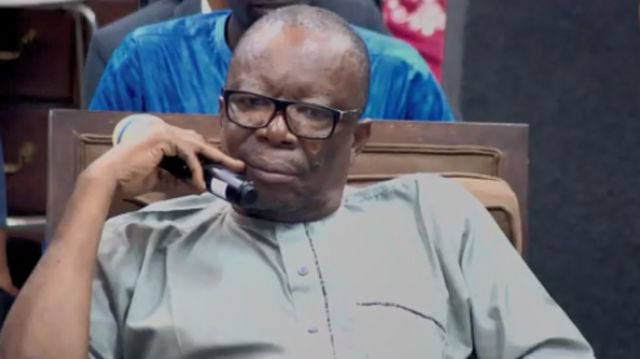The President of the Academic Staff Union of Universities, Prof Emmanuel Osodeke, has raised the alarm over the 40 to 50 per cent of students whom he predicts may drop out of school within the next two years if the Federal Government fails to stop the continuous fee hike in the universities.
Osodeke made this known while speaking on the current situation in the Nigerian education sector on Channels TV Sunday night.
According to him, the heavy fees being imposed on students across the nation would result in a massive drop-out of students, due to their inability to cope with the payments.
He said: “If nothing is done about these heavy fees being introduced by schools all over the country, in the next two or three years, more than 40 to 50 per cent of these children who are in school today will drop out.”
The varsities’ union president also warned of a looming national problem if his prediction of a massive drop-out of students nationwide came to reality.
According to him, dropping out of school would result in idleness, which could make them easy targets for perpetrators of evil.
“When they drop out, they will become a big feed for recruitment for those who want this country to be ungovernable.
“This is what we are saying, create the environment we have in the 60s and 70s. When I was a student, the government was paying me for being a student. Let’s have an environment where the children of the poor can have access to education.
“School fees of N300,000, how can the children of someone who earns N50,000 a month be able to pay such a fee?”
However, he urged the government to increase budgetary allocation to education to at least 15 per cent of the total budget sum.
He lamented that the 3.8 per cent allocated to education in the last budget was nothing to write home about, saying with an increase in budget allocation to education, parents would be relieved of the burden of paying high fees for their children.
Speaking further, he expressed pessimism that the student loan policy of the government would fail, adding that for the loan policy to work, it had to be reviewed.
“When you are talking about student loans, you have to be comprehensive. There is nothing to show that it would work.
“There is a need for a review. Check what happened in the past and see how we can move forward. But for us, our idea is that instead of calling it a loan, let us call it a grant.
“If you look at the conditions, 90 per cent of the students will not have access to that loan. The condition that you must have parents who earn less than N500,000 per annum [is harsh]. How many people earn less than N500,000 per annum?”, he said.
